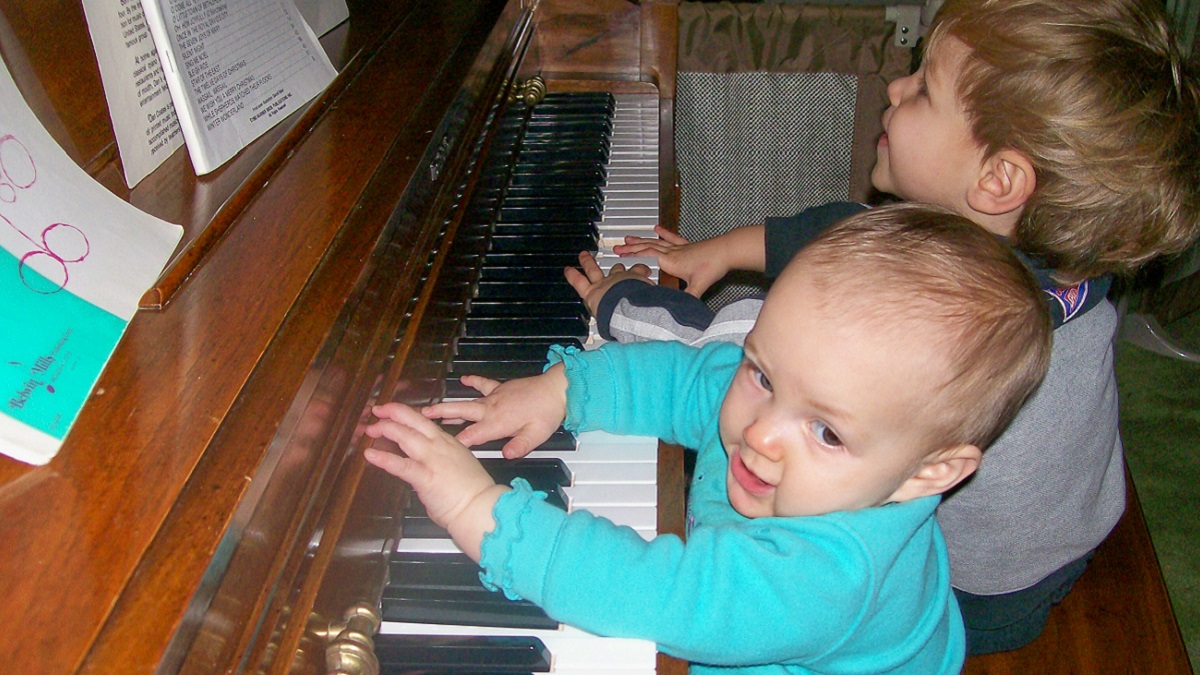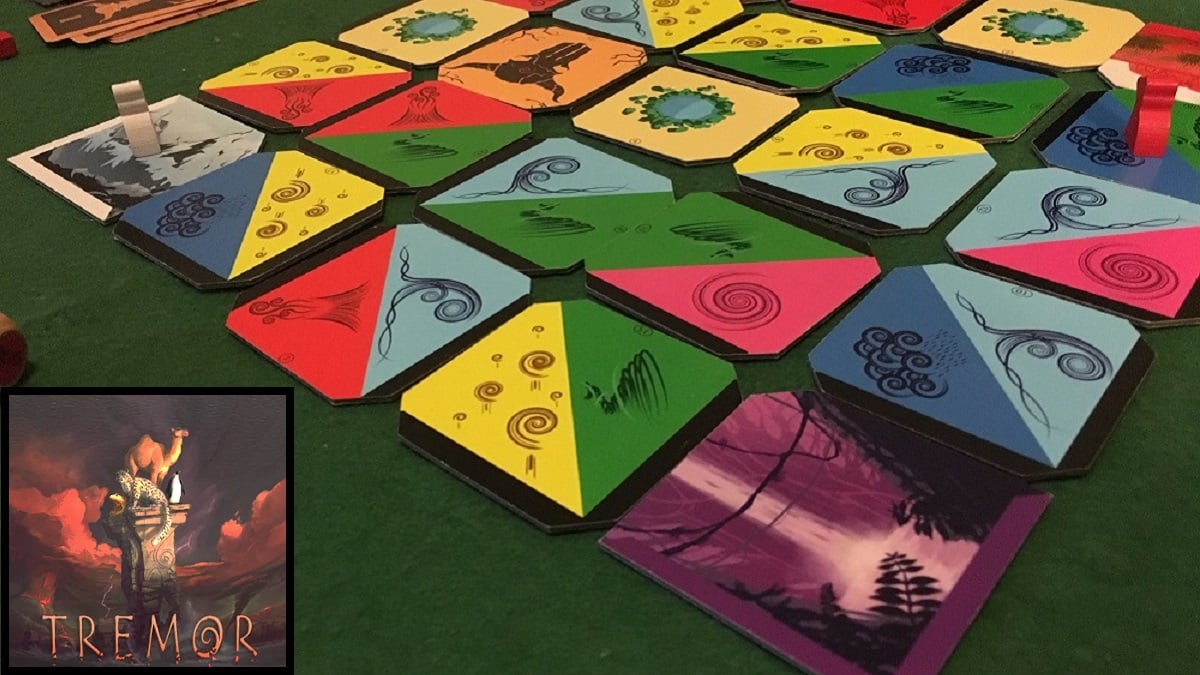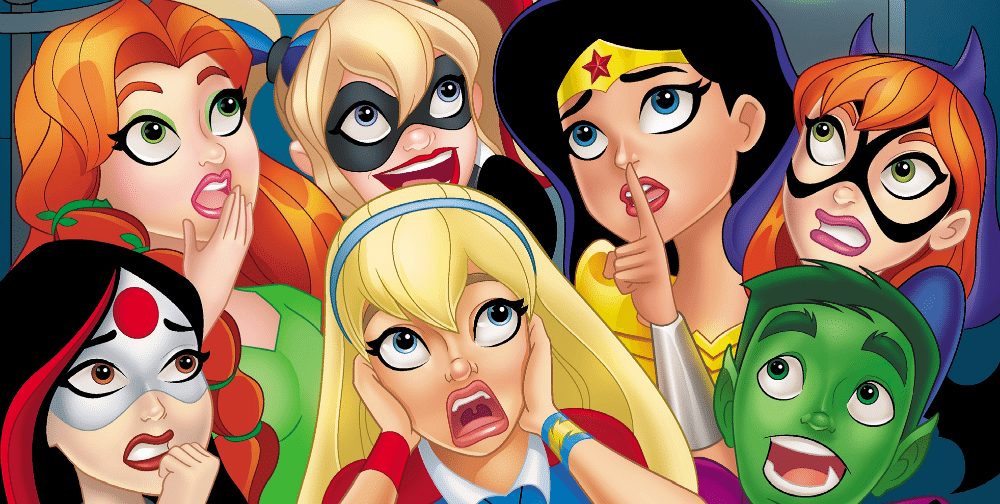
Just under forty years ago, I was in a state. The world was noisy and bright and cold and utterly overwhelming. I couldn’t deal. My kind and gentle parents tried their best, but when I fell into a colicky fit, only one thing worked to soothe me: my dad would sit me on his lap at the piano and play. And suddenly, everything was okay.
Maybe I had to be told the actual details of this occurrence, years later. But I don’t have to remember the event happening, myself, to know exactly what had been going on in my head at the time. Because it still happens. (Not the sitting on my dad’s lap part.) It always works the same way: when the stimuli of the world outside and my mind within become too chaotic, music has charms to soothe the colicky baby. Music is a force that creates order of the raw chaos, and it sorts my brain out every time.
Study after study has been done about the effects of music on various aspects of wellbeing, from mathematical and verbal intelligence to mood to empathy to growth. My fifth grader has recently been experimenting by singing to his plants at school. Some folks think it’s coincidence or confirmation bias, some studies go out of their way to avoid such bias and still find evidence. But I do know that I, personally, have been intentionally using music to help deal with my own emotional and neurological issues since… well, since I was a few months old, and my dad was actually the one with the intentions. It just worked.
Make no mistake: music, like most forms of self-medication, is not a substitute for a well-managed regimen of drugs prescribed by a psychiatrist, for serious mental illness and debilitating symptoms of neurodivergencies, no matter what that meme your well-meaning relative posted on Facebook says. But, like fresh air and exercise, it can positively affect brain function temporarily and for mild blips of symptoms, and at least helps out the medications on not-so-great-days for more serious issues. And it’s way safer than self-medicating with alcohol or street drugs. I depend on my Zoloft to actually function, but my supplementary drug of choice, for those off days, has always been music.
I’m noise-averse. I was the kid who’d ruin a perfectly good pratfall-in-the-cafeteria/boisterous-call-and-response-storytime/balloon-popping-free-for-all by shrieking at everyone to STOP with my hands over my ears. Today I’m not quite so bad: I’m torn between joy that my storytimes are going well, and wincing in empathy for the child who suddenly covers her ears when the entire class laughs out loud at the story I read. But too much noise still makes me tense. Repetitive noises drive me batty. I would rather not even talk out loud, to the point where I sometimes hang up in frustration if I get a phone tree that insists I “say ‘customer service!’ instead of simply pressing 1.” Reading Evil Genius Mum’s post “Why a Loud ‘Kiai’ Can Save Your Life” the other month made me go, “Well, shoot then. I’m dead.” I can’t even make myself roar doing Lion Pose.*
But music? Music hits the right frequencies. I usually have to apologize and turn the radio down when I have a passenger in my car because by myself it rumbles the frame. I am the person you catch singing along to the background music at the store. I can probably go a whole day without speaking more than a word or two, but I’ll sing at the slightest provocation.
Music is anti-noise. Noise is static electricity, music is a current you can plug your lights into. Music channels sound, focuses it, and that, in turn, helps ME focus.
It’s why the opening of The Who’s “Baba O’Riley” sounds so good. It starts with a repetitive synth loop, which, though the individual notes are musical frequencies, quickly starts to veer into “noise” territory. But just before the sound becomes truly annoying, these huge, slow, and steady piano chords come in over top. Granted, I’ve been particularly partial to the sound of piano since I was an infant, but these chords aren’t anything fancy—it’s just that, by the very contrast between the two instruments, that piano suddenly turns that synth loop from noise to rhythm. Order out of chaos. Then the drums come crashing in, pushing the newly-formed order to a new level of intensity, and it’s pure ecstasy. And I don’t use that word lightly.
Music Is Spiritual
In Terry Pratchett’s Soul Music, he posits that the catalyst that set the creation of the universe in motion was actually a massive power chord. Where is the lie in this? Order out of chaos. It’s an utterly fitting image, and additionally captures the transcendent power of music.
Some CCD teacher once told me that prayer is twice as powerful sung as it is said. I don’t know what the theological basis of that statement is, but it makes sense because singing a prayer engages more parts of the mind and body than simply speaking it would. You’re more present in the experience, more meditative. It can’t be mere coincidence that music plays a large part in spiritual practices across time and around the world. Indeed, I don’t personally feel a visit to a church is complete unless I can participate in song.
My best friend is a Unitarian minister, and she focuses her ministry on music. Recently she started what she calls “Virtual Chant Circle” on her Facebook page. Each Friday morning she turns on Facebook Live, sits in front of the camera with her guitar (usually), and teaches a simple chant or song from one of a broad variety of spiritual traditions. Then, in her soothing contralto, she repeats it, over and over, for sometimes nearly ten minutes, encouraging everyone tuning in to sing along. Participants not only get the benefit of a little boost of personal meditative reflection, but, the idea is, if we’re focused on the idea of everyone singing together in front of our screens scattered all over the world, we’ll also be strengthening the spiritual connection between all our distant souls, creating unity across distance, at the same time.
On the other hand, legend holds that the Angel of Music had been the fallen Lucifer. And certainly, silence can be spiritual as well. Before I found out that I have a genuine executive function disorder, I thought that maybe listening to music all the time was distracting me from getting THINGS done. After all, I usually found myself singing along, air-drumming, and occasionally needing to vent my feels about the song out onto the internet (I still do, nowadays on Twitter, but when this story takes place I used LiveJournal) instead of working on whatever I was supposed to be working on. As an experiment in Mindfulness one year, I gave up “extraneous background music” for Lent.
Long story short, I still couldn’t concentrate. And now I was cranky, too.
Music and Mood
In high school, I joined every musical ensemble I could at school, and mastered the Art of the Mix Tape at home. I also first got diagnosed with clinical depression, which had been haunting me for years. But now that I knew what was happening, I started putting forethought into dealing with it, and I thought the Art of the Mix Tape could help. What I needed, in those moments when my depression made me incapable of anything but sitting and staring, was music that could meet me where I was and gradually draw me back into the light. The Depression Mix I created began with the most hopeless, depressing music I had—at that point in my life, that was Simon and Garfunkel’s “The Sound of Silence”**—and gradually, one song at a time, added a little more energy, a little more emotion, and a little more hope. Though all the songs were quiet and at least touched with melancholy, if you started with the songs on side two, at your worst, they’d only annoy you with their not-completely-hopelessness. But if you listened in the order of my mix, you wouldn’t notice the moods of the songs—and in turn, your own mood—improving, until by end of the 80-minute tape, you were ready to accept that the long cold lonely winter could fade away, as the final song, my favorite, assured. George Harrison, I’ve noted here, always had a brilliant way of filling melancholy songs with hope and joyful songs with the memory of sorrow… perfect for recovering from a bout of hopelessness.
Recently, I thought, my music collection having expanded so much over the last twenty-some years, I could create a new Depression Playlist. But as I tried sorting all these new songs into the proper gradual order, I realized that nowadays all I need is George Harrison’s All Things Must Pass, and dropped it.
On the other hand, some bad moods call for a different musical cure. I have trouble expressing anger—for many years I wondered if I even got angry. But I do, it just simmers inside making me feel ill. It’s not healthy to leave anger unexpressed, no matter how outwardly peaceful it appears. Then I discovered hard rock. Pounding drums and driving guitars know what to do with the negative energy I tend to hold in. When I’m angry, I’ll put on something like Hendrix or Green Day, something loud and driving, and the rhythm harnesses my anger. The anger turns into power, and, ironically, sublimates. I’m left feeling, if not no longer angry, at least somewhat ferociously joyful, like I can face the world’s injustices head-on. Rock is the outlet my gentle-sweet-nonconfrontational self needs for anger.
The Literal Mozart Effect
So sure, you can use music to shape your spiritual or emotional health, but what about the rest of your mind? Can music make you smarter? Remember “The Mozart Effect”? One study proposed that listening to Mozart temporarily increased participants’ abilities to solve certain spatial tests, and then suddenly people everywhere were shouting, “Classical music raises your IQ! Play Mozart to your baby so they get into the best universities!” It got a little out of hand, partly from people who don’t even realize that Mozart sounds totally different from, say, Brahms, partly from people conflating temporary improvements in mental activity with permanent increases in intelligence. It all muddies that there may be truth behind the theory after all, for some people, in some ways. Well, for me and my executive functions.
I have two different friends, who have never met, who both listen to far more classical music than the average person, and both of whom I’ve argued with over Mozart. They don’t care for his work. “He’s just so… mathematical,” they’ve both complained. And I hadn’t really thought of it until they said it, but, “that’s the point!” I realized. “That’s why I love it!”
Mozart is mathematical. He’s not trying to tell a story through notes (not counting operas) or paint pictures with tones. It’s just pure, logical, music-for-music’s-sake. It’s the same principle as the picture and video memes with titles like “The Most Satisfying Pictures You Will See All Day,” showing things lined up or fitting together seamlessly. It’s orderly and beautiful at once, and when I hear it, my chaotic ADHD brain quiets. I swear I can feel my neurons realigning themselves as I listen. The sheer orderliness of the music sorts my own head out, bringing me peace and focus. I really love Mozart, specifically, of all classical composers, because his music works on my brain like Ritalin—I can feel the same thing happening. And Ritalin works entirely differently on the brains of the neurotypical, so maybe that says something about the non-universality of the Mozart Effect as well.
Free Your Mind
That said, I have a special place in my heart for a musical subgenre exactly opposite of Mozart’s orderliness. Psychedelia works because it is chaotic. It revolves around randomness, nonsense, and the unexpected. It’s designed specifically to unsettle the mind, and it can be unpleasant or even frightening.
Psychedelic rock was far from my favorite genre originally because it freaked me out. As my Beatlemania first came into bloom at age fifteen, I’d feel self-conscious about some of the album tracks—”Okay, I love them in spite of this weirdness”—and still left a listen of “A Day in the Life” slightly terrified… until the weirdness became my favorite parts. As my embrace and study of classic rock, in general, took off, resulting in my own radio show in college, I still admitted, for several years, “But I just don’t like Pink Floyd. I just can’t get into Pink Floyd. I will probably never like Pink Floyd. I guess there are just some bands you will never click with and mine is… oh, for crying out loud, I think Pink Floyd has become my second-favorite band.”***
The thing is, what I love and hate about psychedelia is one and the same: it reminds me of the scary, beautiful, confusing depths of my own mind.
It’s the “somebody GETS it” feeling. Somebody gets that life is chaotic and weird. Somebody gets that the logical, sensible “reality” everyone believes in to make society work isn’t the full picture. It’s the maybe I’m not the only one feeling.
But it seems to directly contradict why I originally sought solace in music. If music brings order to my chaos, why would I love music that revels in chaos?
The answer is because there’s order to it. Psychedelic music actually makes chaos orderly. The best psychedelic music, in my opinion, resolves the chaos in some way, even while reveling in it. It’s why, even as a lifelong Beatlemaniac, I still skip “Revolution 9” when I listen to the White Album. It’s unlistenable. It’s nine minutes of noise. If John had taken that noise and given it a more melodic backdrop, it might have been glorious. I need my psych rock not just to say, “the universe is crazy,” but to say, “the universe is crazy, but look what we can do with it.”
It’s what, after hearing Bruce Coville speak on the topic in regards to storytelling, I always think of as “the Clowns of God Effect.” If you put humor into your story, it makes the pathos hit harder. And in turn, pathos makes the humor hit harder. George Harrison’s long-awaited sun makes it all right because it’s been a long cold lonely winter, and psychedelia is glorious because it finds order in the chaos.
One of my favorite moments in psychedelic music happens about three quarters of the way through Pink Floyd’s 23-minute epic “Echoes,” and I’m pretty sure that what makes it so powerful is that, just about halfway through the song, all the music suddenly drops out, leaving nothing but wind and electronic sea creature-esque noises. It’s chaotic and, frankly, boring. But after about four minutes, the electronic strings come gradually back into the forefront, just sustained chords, and the chiming sonar-like notes that opened the song return—funny, at the beginning of the song, they sounded like noise, but after four minutes of random ocean noise, suddenly they sound like notes. And then, after another minute, a quiet but driving rhythm guitar comes in, gradually getting louder and being joined by a loose melody over top after another minute, and suddenly, at 18:15, it all just cumulates in this triumphant bit of guitar before the last verse of the song comes in. I feel like, if there hadn’t been that chaos for four minutes in the middle, the gradual return of order wouldn’t have been nearly as effective.
I’ve always felt there’s something mysterious and miraculous about music, that it’s the purest form of art, because it can exist without trying to represent anything (although it can if it wants to), because it’s scientific phenomenon as much as practiced art, because it’s just vibrations—but those vibrations can cause happiness, sadness, calm, energy, focus and transcendence.
And I will keep harnessing those vibrations to help me feel fully alive.

*Yet I DID have a bit part in my senior High School Musical that solely required me to run across the stage giving an ear-piercing horror movie scream, and it was awesome, so some exceptions apply.
**Ever since they saw the Trolls movie, my children have made the same song their shorthand for “melodramatic tragedy.” So it’s definitely lost poignancy in my life nowadays.
***I blame the radio. You can’t get the true sense of Pink Floyd from songs played on the radio. Too many out-of-context Wall tracks. Too much nasty Roger Waters’ yelling songs, not enough of Dave Gilmour’s gloriously wailing guitar and Rich Wright’s transcendental keyboard. And nothing at all of Syd Barrett’s wacky psychedelic poetry from the early days. It wasn’t until I heard entire albums played through that I finally got Pink Floyd.




You said how I feel about music. When I’m trying to focus I have a Mozart song in my head. I have to listen to music loud. It feels like the music is pulling all the bad out. The Astronaut King is trippy. I like to listen to that just to calm. There is a good book I read called This is your Brain on Music by Daniel J Levitin. A few Ah huh moments. I haven’t really finished it. The ADHD brain!?. I hope made your article will help some other folks. ❤️
This is great because music really is the best therapy. It’s necessary for me too when I need to focus. Great post because I’m sure many other readers are relating to this.